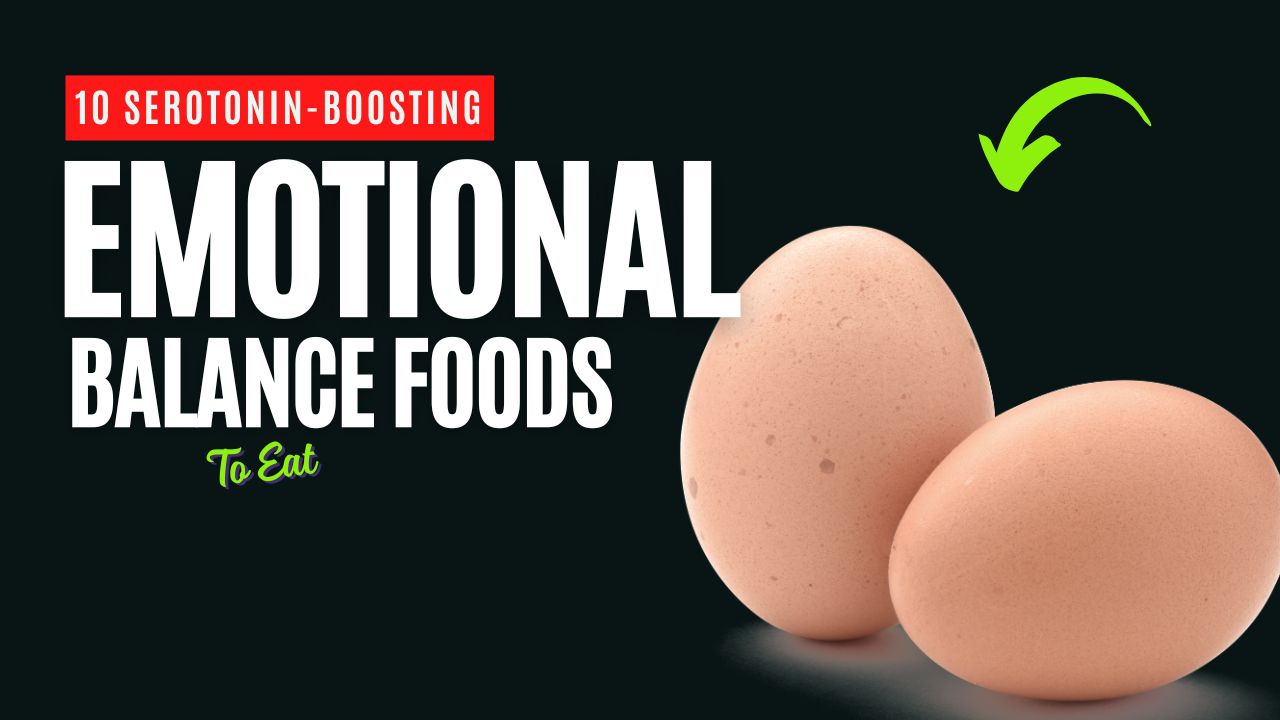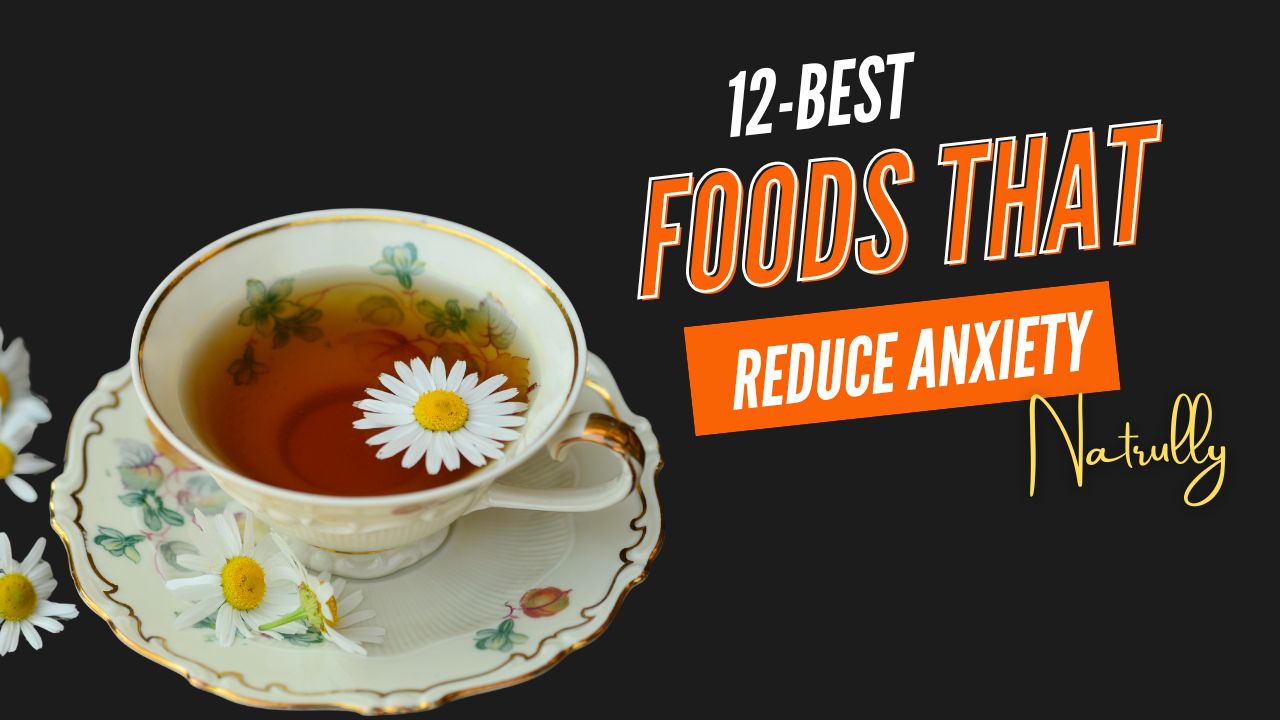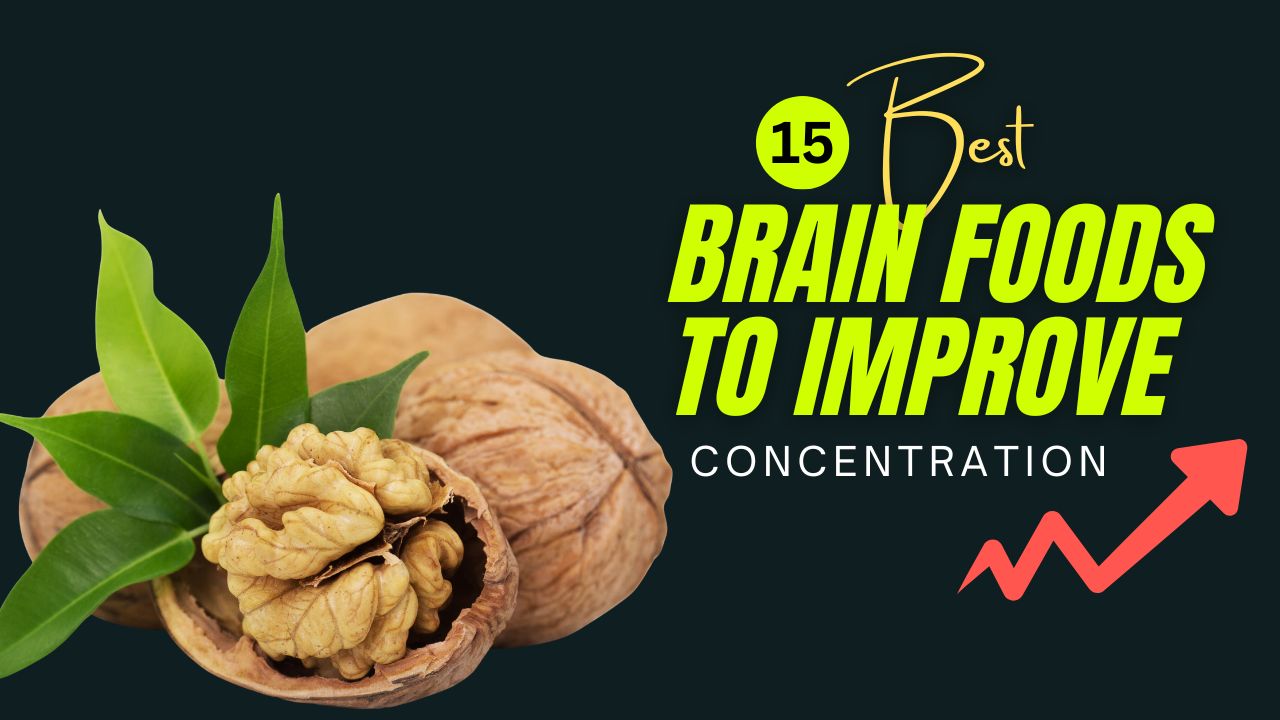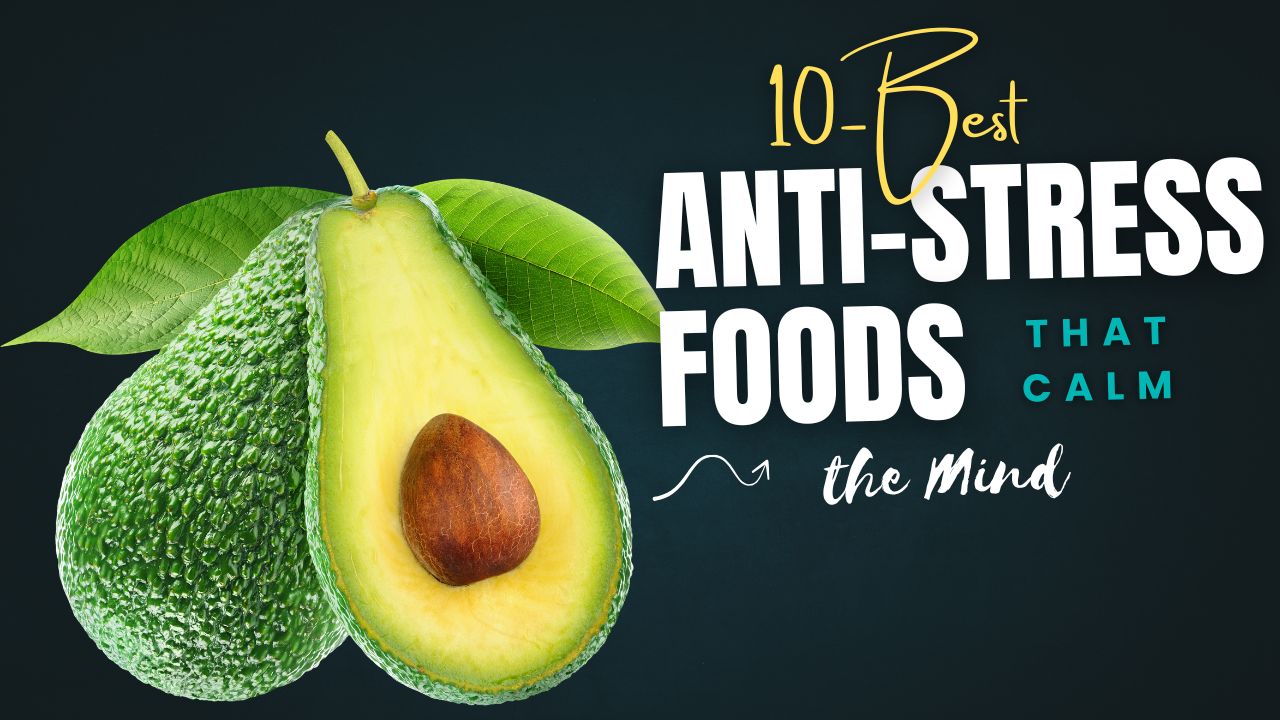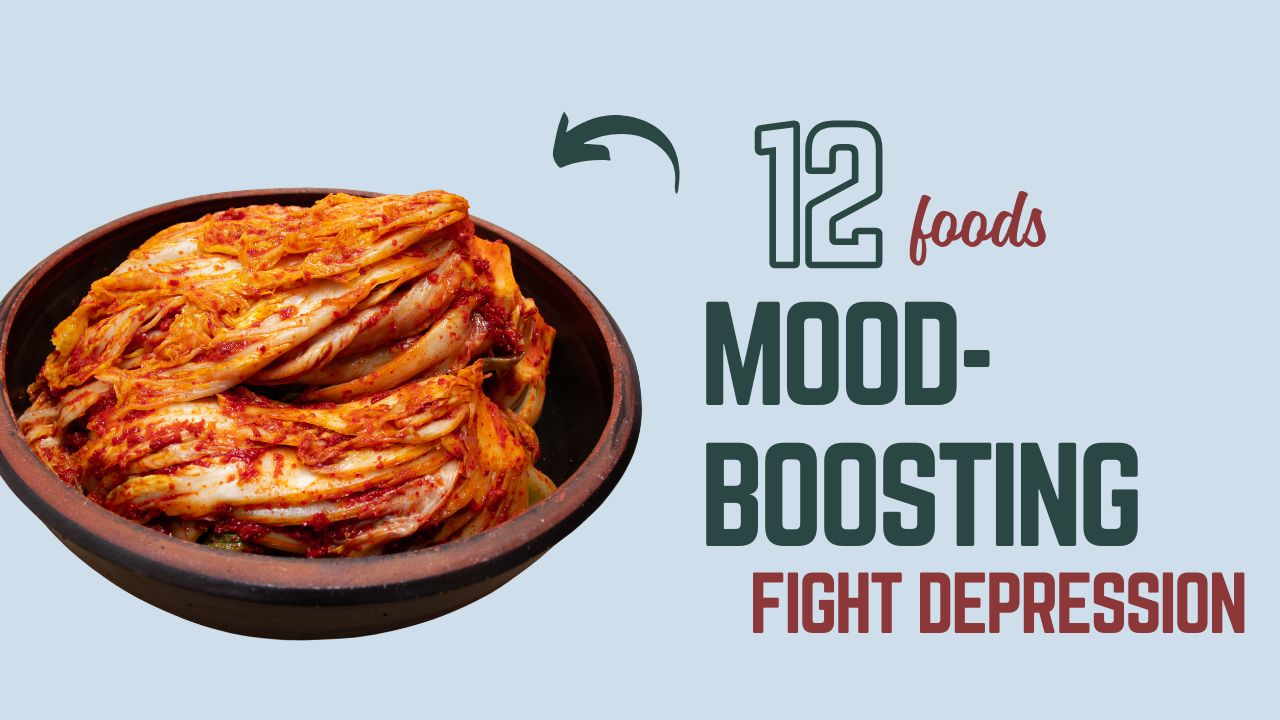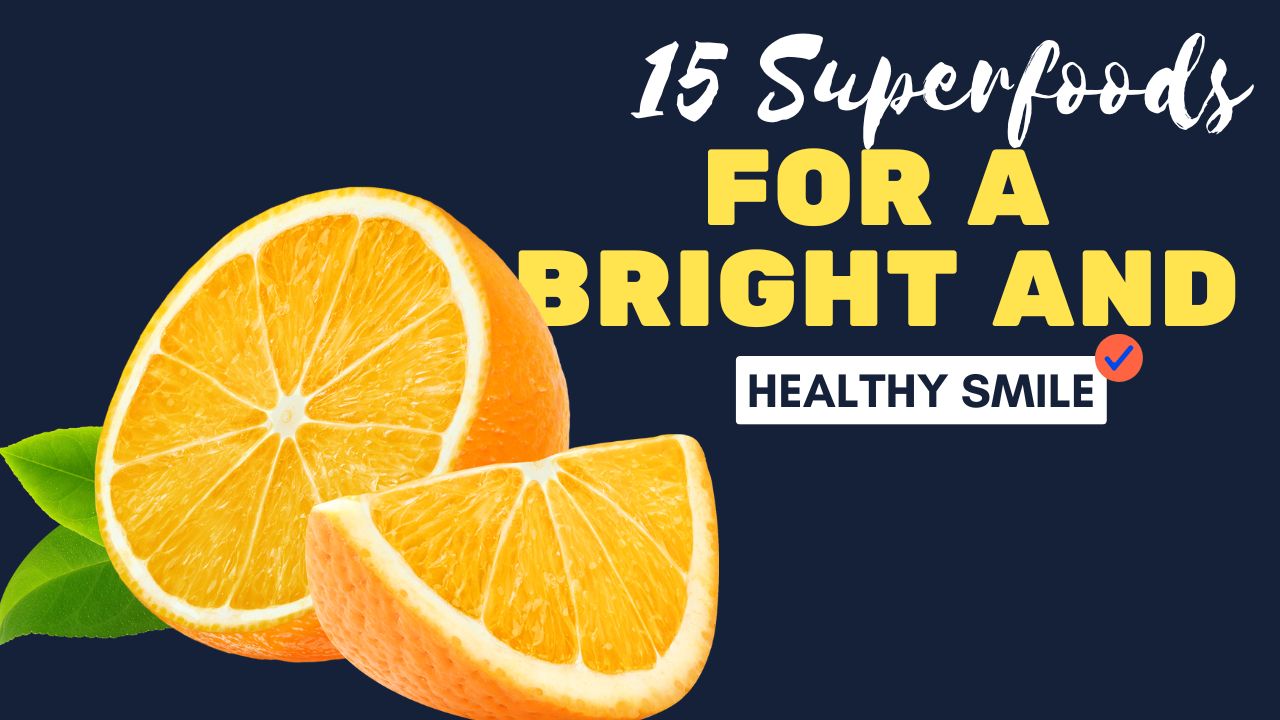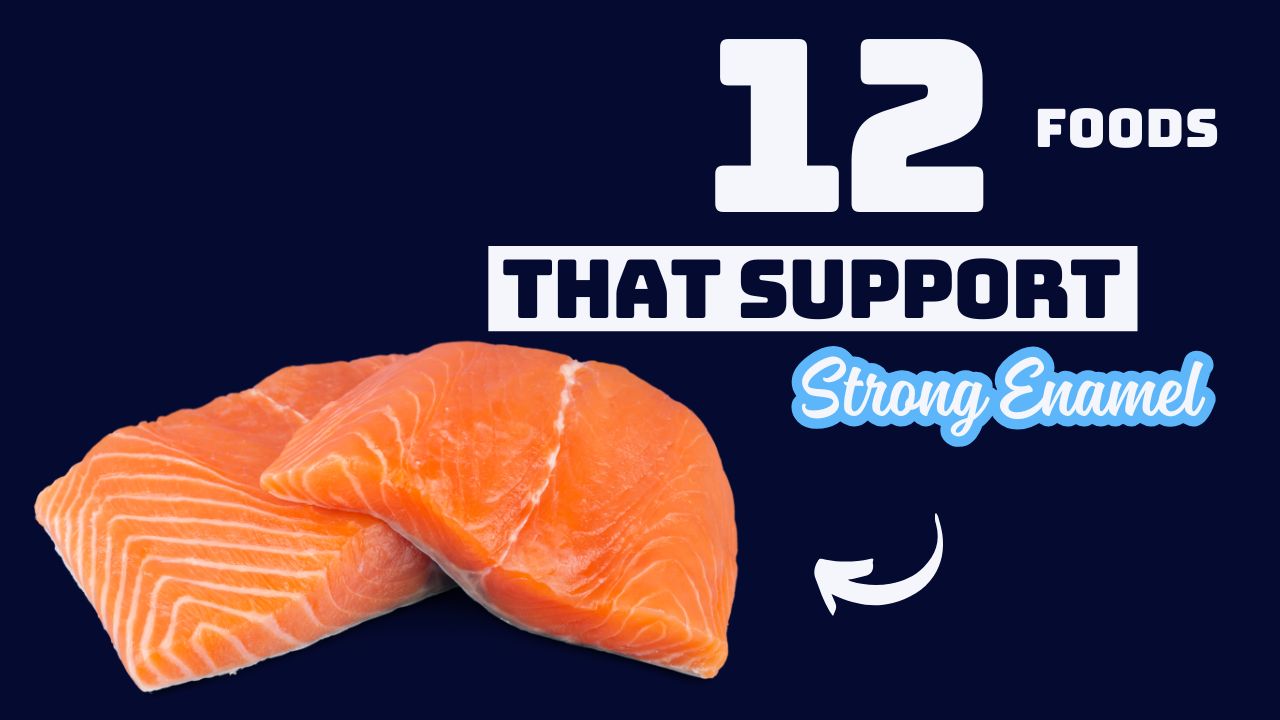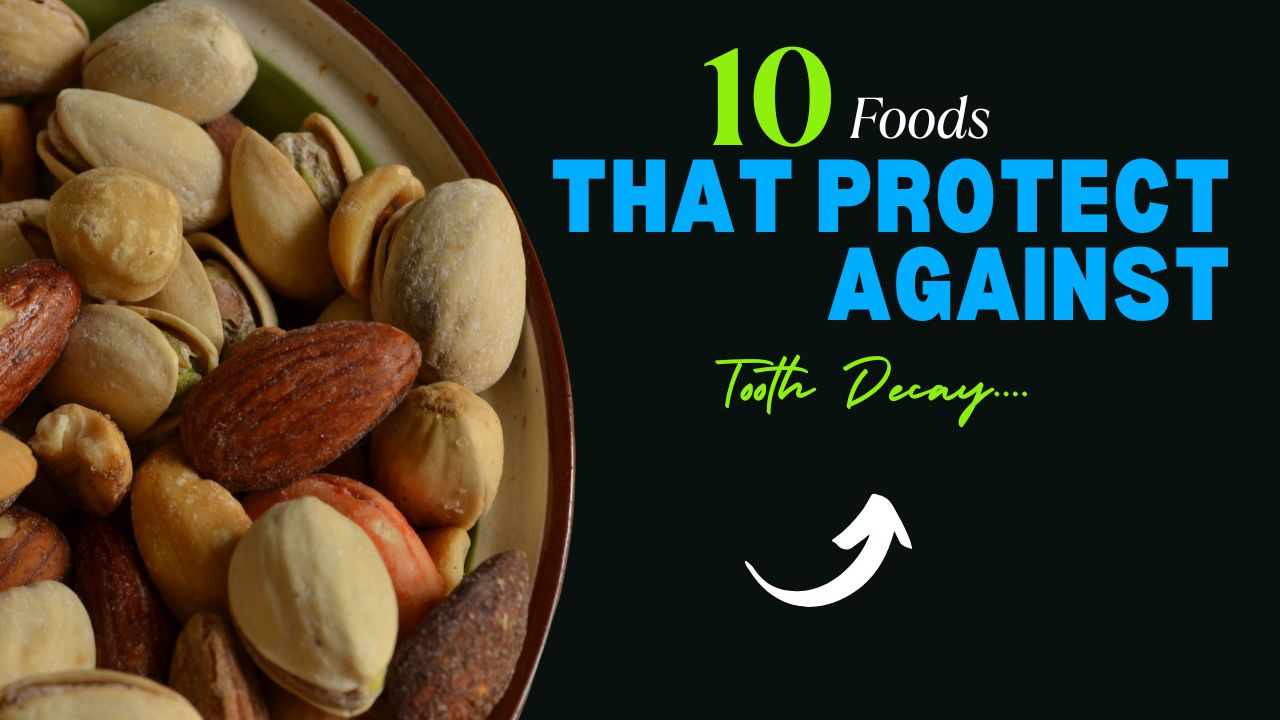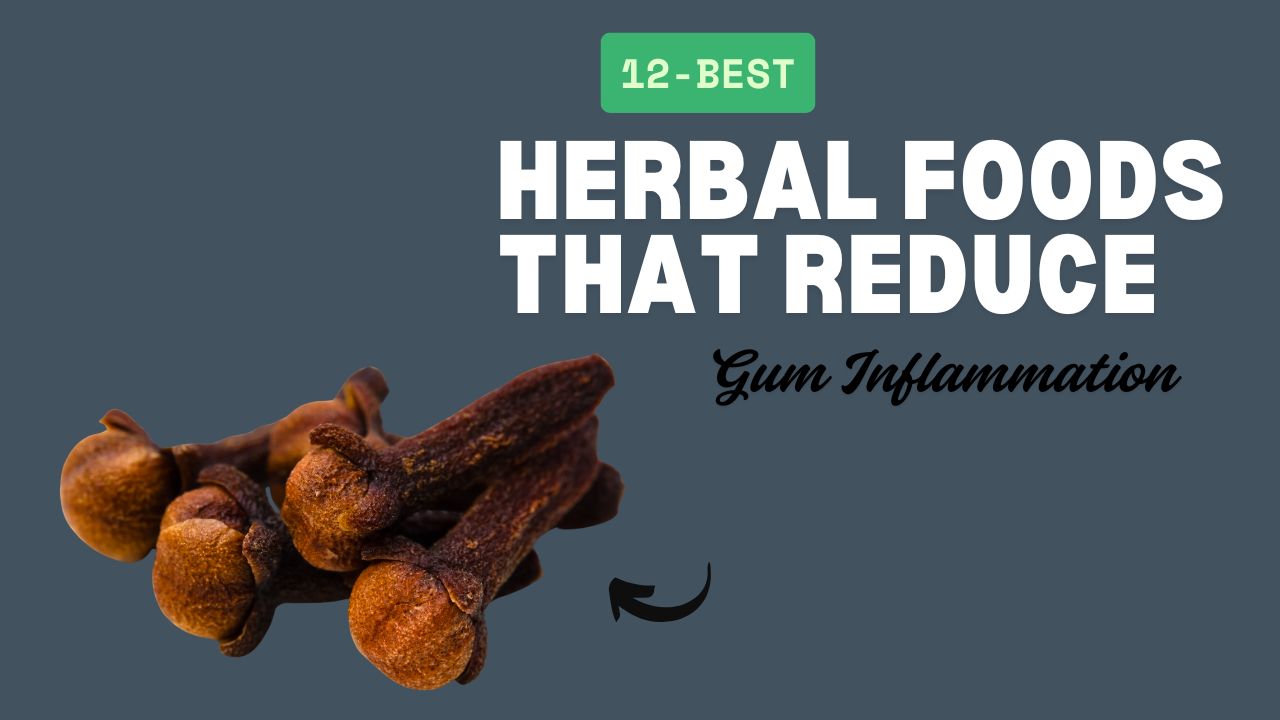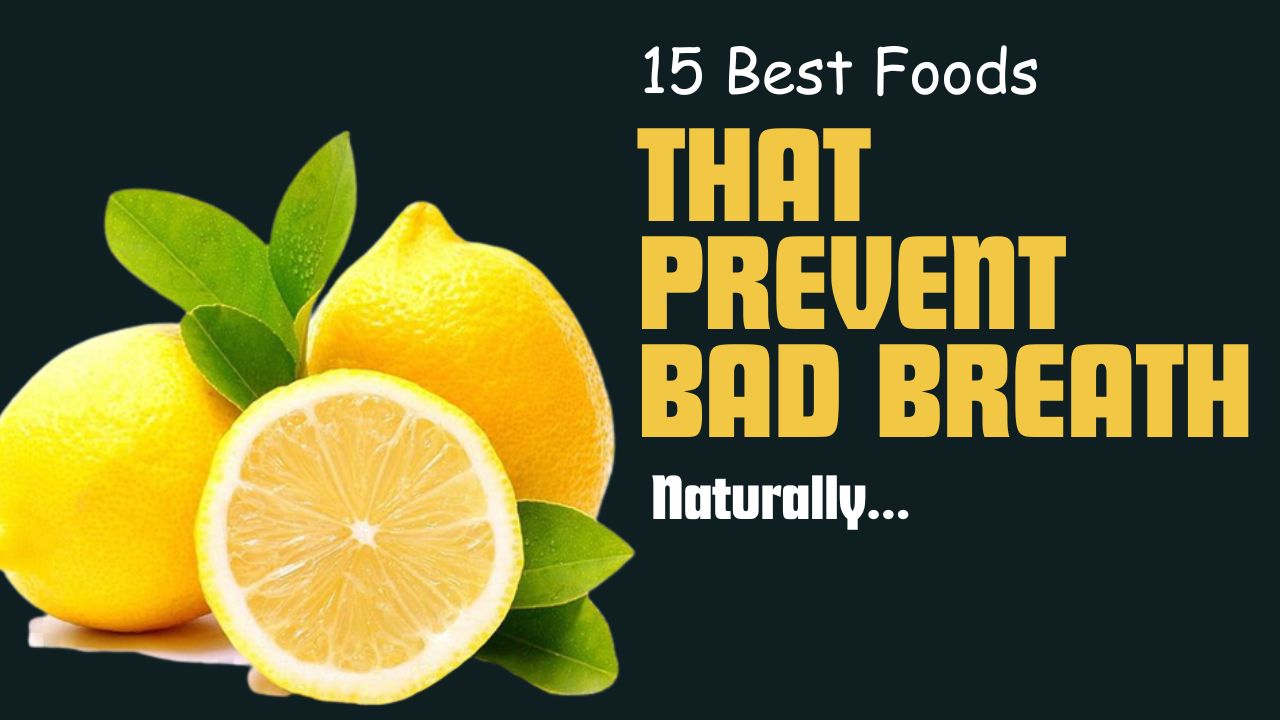Did you know that your smile can reveal more about your overall health than you think? Studies show that certain foods don’t just strengthen your body—they also help protect your teeth, gums, and overall oral health.
While regular brushing and dental check-ups are essential, what you eat plays a surprisingly big role in keeping your smile bright, strong, and cavity-free.
In this article, we’ll explore 15 powerful superfoods that support a healthy mouth. Some may surprise you—like crunchy veggies that act as natural toothbrushes or drinks that balance harmful bacteria in your mouth. By the end, you’ll know exactly which foods to add to your diet for whiter teeth, stronger gums, and fresher breath.
Here’s what you’ll discover:
- Which superfoods naturally strengthen tooth enamel.
- The surprising foods that freshen breath.
- Easy ways to add these foods to your daily meals.
- Who should be cautious about certain choices.
Let’s dive into the list of smile-friendly superfoods that your dentist will secretly love you for eating.
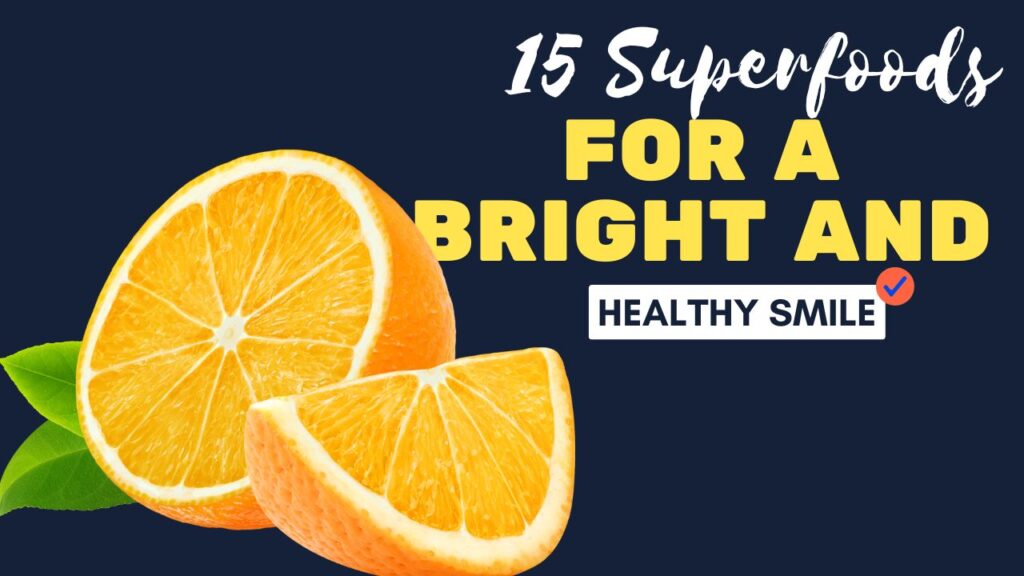
Table of Contents
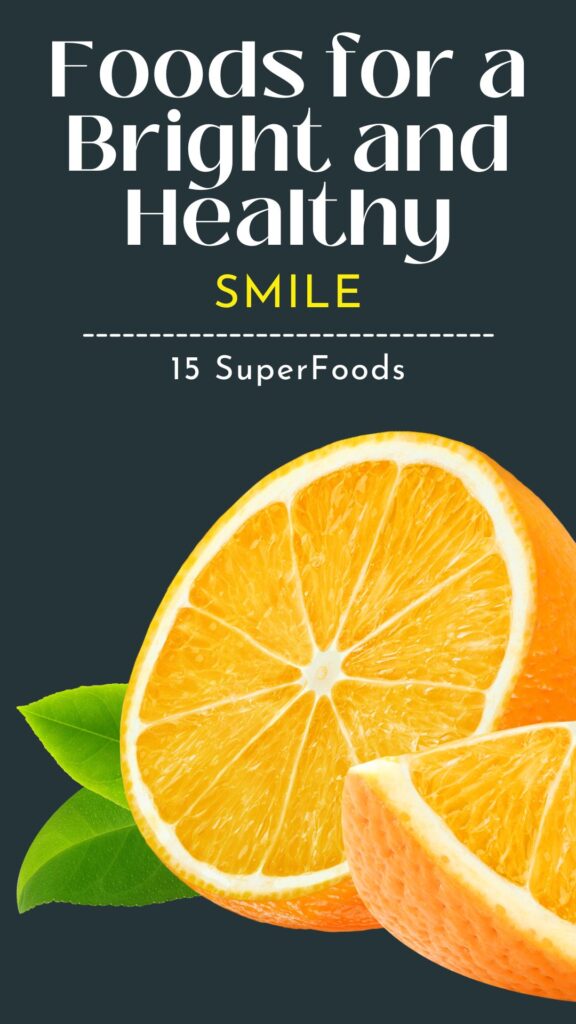
15 Superfoods For Healthy Oral
1. Apples – The Natural Toothbrush
Apples are rich in fiber and water, and when you bite into them, they act like a gentle scrub for your teeth. They also stimulate saliva flow, which helps wash away food particles and bacteria.
Best Ways to Eat or Use It
- Enjoy them raw for maximum crunch.
- Slice into salads for added freshness.
- Blend into smoothies for a nutrient-rich drink.
Who Should Eat / Avoid
- Good for: kids, adults with busy lifestyles, people prone to snacking.
- Avoid/Limit if: you have acid reflux, as apples can sometimes trigger it.
Storage & Buying Tips
- Choose firm, brightly colored apples without bruises.
- Store in the refrigerator to keep fresh longer.
Do’s & Don’ts
✅ Do: Eat with the skin for maximum fiber.
❌ Don’t: Replace brushing with apples—they help but don’t clean as thoroughly.
Possible Side Effects
Excessive consumption may cause bloating due to high fiber content.
2. Yogurt – The Gut and Gum Protector
Rich in calcium and probiotics, yogurt strengthens teeth while balancing the bacteria in your mouth, lowering the risk of cavities and gum disease.
Best Ways to Eat or Use It
- Choose plain, unsweetened yogurt.
- Add fresh fruits or nuts for extra flavor.
Who Should Eat / Avoid
- Good for: those needing extra calcium, kids, pregnant women.
- Avoid/Limit if: lactose intolerant or sensitive to dairy.
Storage & Buying Tips
- Look for “live cultures” on the label.
- Keep refrigerated and consume within a week of opening.
Do’s & Don’ts
✅ Do: Opt for unsweetened varieties.
❌ Don’t: Buy flavored yogurts high in sugar.
Possible Side Effects
Some may experience digestive issues if lactose intolerant.
3. Leafy Greens – Nature’s Multivitamin
Spinach, kale, and collard greens are packed with calcium, folic acid, and antioxidants—all excellent for gum health.
Best Ways to Eat or Use It
- Toss into salads or smoothies.
- Steam lightly to retain nutrients.
Who Should Eat / Avoid
- Good for: vegetarians, athletes, pregnant women.
- Avoid/Limit if: taking blood-thinning medication (high vitamin K content).
Storage & Buying Tips
- Choose crisp, dark leaves.
- Store in a paper towel inside a container in the fridge.
Do’s & Don’ts
✅ Do: Mix with vitamin C-rich foods to boost iron absorption.
❌ Don’t: Overcook, as nutrients can be lost.
Possible Side Effects
Excessive consumption may lead to kidney stones in sensitive individuals due to oxalates.
4. Carrots – Crunchy Enamel Protectors
Carrots stimulate saliva production and act like a natural cleaner for teeth.
Best Ways to Eat or Use It
- Snack on raw carrot sticks.
- Add shredded carrots to salads.
- Use in soups and stews.
Who Should Eat / Avoid
- Good for: children, weight-loss seekers.
- Avoid/Limit if: prone to high blood sugar (in large quantities).
Storage & Buying Tips
- Pick firm, bright orange carrots.
- Store in a cool, dry place or refrigerator.
Do’s & Don’ts
✅ Do: Eat raw for crunch benefits.
❌ Don’t: Leave peeled carrots exposed—they dry out quickly.
Possible Side Effects
Carotenemia (yellowish skin) if eaten excessively, though harmless.
5. Green Tea – The Cavity Fighter
Green tea is rich in polyphenols that fight bacteria and reduce bad breath.
Best Ways to Eat or Use It
- Drink freshly brewed green tea.
- Avoid adding sugar.
Who Should Eat / Avoid
- Good for: adults, those prone to bad breath.
- Avoid/Limit if: sensitive to caffeine or with iron deficiency.
Storage & Buying Tips
- Store tea leaves in an airtight container.
- Avoid moisture and sunlight.
Do’s & Don’ts
✅ Do: Drink without sugar.
❌ Don’t: Overconsume (too much caffeine).
Possible Side Effects
Excessive intake can cause insomnia or upset stomach.
6. Cheese – The Enamel Builder
Cheese raises the pH in your mouth, reducing cavity risk, and provides calcium and protein.
Best Ways to Eat or Use It
- Snack on small cubes.
- Add to sandwiches or salads.
Who Should Eat / Avoid
- Good for: kids, athletes, elderly.
- Avoid/Limit if: lactose intolerant or with high cholesterol.
Storage & Buying Tips
- Store in the fridge wrapped in wax paper or cheese paper.
Do’s & Don’ts
✅ Do: Eat after meals to neutralize acids.
❌ Don’t: Overindulge in processed cheeses.
Possible Side Effects
High sodium intake if consumed in excess.
7. Almonds – Crunchy Calcium Source
Packed with calcium and protein, almonds are excellent for teeth.
Best Ways to Eat or Use It
- Snack on raw almonds.
- Add to salads or yogurt.
Who Should Eat / Avoid
- Good for: vegans, kids, busy professionals.
- Avoid/Limit if: allergic to nuts.
Storage & Buying Tips
- Store in airtight containers in a cool place.
Do’s & Don’ts
✅ Do: Eat unsalted almonds.
❌ Don’t: Overeat—they’re calorie-dense.
Possible Side Effects
Can cause digestive issues in excess.
8. Strawberries – The Whitening Fruit
Strawberries contain malic acid, which naturally whitens teeth.
Best Ways to Eat or Use It
- Eat fresh as snacks.
- Blend into smoothies.
Who Should Eat / Avoid
- Good for: everyone needing a vitamin C boost.
- Avoid/Limit if: prone to acid erosion.
Storage & Buying Tips
- Choose bright red, firm berries.
- Store in the fridge but consume quickly.
Do’s & Don’ts
✅ Do: Rinse your mouth after eating.
❌ Don’t: Add sugar or syrup.
Possible Side Effects
Acidic content may weaken enamel if overconsumed.
9. Celery – The Natural Mouth Cleanser
Celery requires extra chewing, boosting saliva and scrubbing teeth.
Best Ways to Eat or Use It
- Snack with hummus or peanut butter.
- Add to soups and salads.
Who Should Eat / Avoid
- Good for: weight-loss seekers, kids.
- Avoid/Limit if: digestive sensitivities.
Storage & Buying Tips
- Store in the fridge wrapped in foil to stay crisp.
Do’s & Don’ts
✅ Do: Eat raw for maximum benefit.
❌ Don’t: Leave cut celery out too long—it wilts.
Possible Side Effects
May cause bloating in some people.
10. Salmon – The Vitamin D Powerhouse
Salmon provides vitamin D, essential for calcium absorption and strong teeth.
Best Ways to Eat or Use It
- Grill or bake.
- Add to salads or sandwiches.
Who Should Eat / Avoid
- Good for: growing children, athletes, elderly.
- Avoid/Limit if: allergic to seafood.
Storage & Buying Tips
- Buy fresh, wild-caught salmon when possible.
- Store in fridge and cook within 2 days.
Do’s & Don’ts
✅ Do: Pair with leafy greens for full benefits.
❌ Don’t: Fry heavily—it destroys nutrients.
Possible Side Effects
Mercury exposure risk if overconsumed.
11. Water – The Unsung Hero
Water rinses away bacteria, balances pH, and hydrates your mouth.
Best Ways to Eat or Use It
- Sip throughout the day.
- Choose fluoridated water when possible.
Who Should Eat / Avoid
- Good for: everyone.
- Avoid/Limit if: excessive distilled water (lacks minerals).
Storage & Buying Tips
- Store in clean, BPA-free bottles.
Do’s & Don’ts
✅ Do: Drink after meals.
❌ Don’t: Replace with sugary drinks.
Possible Side Effects
None, unless water quality is poor.
12. Oranges – Vitamin C for Gums
Vitamin C strengthens blood vessels and connective tissues in gums.
Best Ways to Eat or Use It
- Fresh orange slices.
- Fresh-squeezed juice.
Who Should Eat / Avoid
- Good for: immune health, gum strength.
- Avoid/Limit if: prone to acid reflux.
Storage & Buying Tips
- Choose firm, heavy oranges.
- Store in a cool place.
Do’s & Don’ts
✅ Do: Rinse mouth after eating.
❌ Don’t: Brush immediately after eating (acidic).
Possible Side Effects
Too much can cause enamel erosion.
13. Sesame Seeds – Tiny Enamel Boosters
Sesame seeds scrub teeth while providing calcium.
Best Ways to Eat or Use It
- Sprinkle on salads, stir-fries, or bread.
- Add to smoothies.
Who Should Eat / Avoid
- Good for: vegetarians, bone health.
- Avoid/Limit if: sesame allergy.
Storage & Buying Tips
- Store in airtight containers.
Do’s & Don’ts
✅ Do: Toast lightly for flavor.
❌ Don’t: Store in warm areas—seeds spoil quickly.
Possible Side Effects
May cause allergic reactions.
14. Cranberries – The Anti-Bacteria Berry
Cranberries prevent bacteria from sticking to teeth.
Best Ways to Eat or Use It
- Fresh cranberries in salads.
- Unsweetened cranberry juice.
Who Should Eat / Avoid
- Good for: those prone to gum infections.
- Avoid/Limit if: prone to kidney stones.
Storage & Buying Tips
- Store fresh cranberries in the fridge.
Do’s & Don’ts
✅ Do: Choose unsweetened juice.
❌ Don’t: Buy cranberry products with added sugar.
Possible Side Effects
Too much can cause stomach upset.
15. Dark Chocolate – The Sweet Surprise
Dark chocolate contains theobromine, which strengthens tooth enamel.
Best Ways to Eat or Use It
- Enjoy small pieces as a treat.
- Add to smoothies or oatmeal.
Who Should Eat / Avoid
- Good for: chocolate lovers, those seeking antioxidants.
- Avoid/Limit if: sensitive to caffeine.
Storage & Buying Tips
- Store in a cool, dry place.
Do’s & Don’ts
✅ Do: Choose at least 70% cocoa.
❌ Don’t: Overconsume—still contains sugar.
Possible Side Effects
Excessive intake may cause weight gain or insomnia.
Conclusion
A healthy smile isn’t just about brushing and flossing—it’s also about what’s on your plate. From apples and carrots that scrub your teeth naturally, to yogurt and salmon that strengthen enamel and bones, these 15 superfoods can transform your oral health in powerful ways.
Adding even a few of these foods into your daily meals can brighten your smile, freshen your breath, and keep your gums strong for years to come.
Why not start today? Add some leafy greens to your lunch, snack on almonds, or swap your soda for green tea. Your smile will thank you!
Now it’s your turn: Which of these superfoods will you try first? Share your favorite recipes or tips in the comments!
Frequently Asked Questions (FAQs)
Can certain foods really improve my dental health?
Yes. Foods rich in calcium, vitamin D, fiber, and antioxidants help strengthen teeth, protect gums, and reduce harmful bacteria in the mouth. While they don’t replace brushing and flossing, they add a strong layer of natural protection.
Which superfood is best for whiter teeth?
Strawberries and apples are known for their natural whitening properties. Strawberries contain malic acid, which helps remove surface stains, while apples scrub teeth through their crunchy texture.
Are dairy products essential for a healthy smile?
Dairy products like yogurt and cheese are excellent sources of calcium and protein, which help rebuild enamel and maintain strong teeth. However, if you are lactose intolerant, you can get calcium from plant-based alternatives like almonds, sesame seeds, and leafy greens.
Can green tea replace mouthwash?
Green tea has antibacterial properties and can reduce bad breath, but it should not completely replace mouthwash. It’s a great addition to your oral care routine when consumed regularly without sugar.
What foods should I avoid for healthy teeth?
Sugary drinks, sticky candies, highly acidic foods, and processed snacks can erode enamel and cause cavities. Even natural acidic fruits like oranges or cranberries should be consumed in moderation and followed with a water rinse.
How often should I eat these superfoods for results?
Consistency matters. Including 2–3 of these smile-friendly superfoods daily can significantly improve oral health over time, especially when combined with good dental hygiene.
Can kids eat all of these superfoods?
Most of them are kid-friendly, like apples, carrots, yogurt, and cheese. However, nuts should be given cautiously to young children due to choking risks, and foods with strong acidity (like citrus fruits) should be limited to protect young enamel.
Do these foods replace professional dental care?
No. While these superfoods support strong teeth and gums, they do not replace regular brushing, flossing, and professional dental check-ups. Think of them as a natural supplement to your oral hygiene routine.
Is dark chocolate really good for teeth?
Yes—in moderation. Dark chocolate contains theobromine, which strengthens enamel and fights decay. The key is choosing chocolate with at least 70% cocoa and limiting sugary varieties.
What’s the single most important drink for oral health?
Water. Drinking water throughout the day helps rinse away food particles, balances mouth pH, and prevents dry mouth, which is a leading cause of bad breath and bacterial growth.
